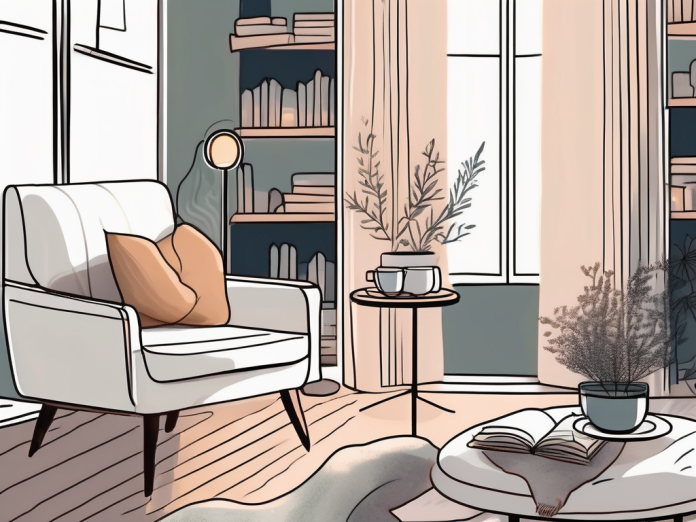After a long and demanding day at work, it’s crucial to take the time to unwind and relax. Stress can have a significant impact on both our physical and mental well-being, so finding effective ways to combat it is essential. In this article, we will explore various techniques and activities that can help you relax your mind and body after a stressful day at work.
Understanding the Impact of Stress on Your Health
Before delving into relaxation techniques, let’s take a moment to understand the impact of stress on our health. While it’s normal to experience occasional stress, chronic stress can have severe consequences on our well-being.
Stress is the body’s natural response to a perceived threat or challenge, triggering a cascade of physiological reactions. When stress becomes chronic, the body remains in a constant state of alert, leading to a variety of health issues.
Physical Consequences of Stress
Prolonged stress can lead to a range of physical health issues, including headaches, muscle tension, and decreased immune system function. It can also contribute to more serious conditions such as high blood pressure and heart disease.
Additionally, chronic stress can disrupt the body’s hormonal balance, leading to imbalances in cortisol levels, which can further impact metabolism, sleep patterns, and overall well-being.
Emotional Consequences of Stress
Alongside the physical symptoms, stress can also take a toll on our emotional well-being. It can lead to feelings of anxiety, irritability, and difficulty concentrating. Chronic stress may even contribute to the development of mental health disorders such as depression and anxiety disorders.
Furthermore, the emotional impact of stress can strain relationships, affect decision-making abilities, and hinder overall quality of life. Learning to manage stress effectively is crucial for maintaining both physical and emotional well-being.
The Importance of Unwinding After Work
Given the significant impact of stress on our health, it’s crucial to prioritize unwinding after a stressful day at work. Taking the time to relax and recharge can provide numerous benefits for both our minds and bodies.
Unwinding after work is not just a luxury but a necessity in today’s fast-paced world. It allows us to hit the reset button, giving our minds and bodies the chance to recuperate from the demands of the day. By engaging in activities that bring us joy and relaxation, we can improve our overall well-being and quality of life.
Benefits of Relaxation for the Mind
Engaging in relaxation techniques can help calm the mind and promote mental clarity. It allows us to let go of work-related worries and stressors, creating space for creativity and problem-solving. Relaxation techniques have also been shown to improve sleep quality, leading to increased focus and productivity the following day.
Furthermore, unwinding after work can enhance our emotional intelligence by allowing us to process our feelings and reactions to the events of the day. This self-reflection can lead to better self-awareness and improved relationships with others, both in the workplace and beyond.
Benefits of Relaxation for the Body
Relaxing the body after work can help decrease muscle tension and alleviate physical symptoms caused by stress. It promotes a state of relaxation that allows the body to repair itself and restore energy levels. Additionally, relaxation techniques such as deep breathing exercises can activate the body’s relaxation response, leading to a decrease in heart rate and blood pressure.
Moreover, unwinding after work can boost our immune system by reducing the production of stress hormones that can weaken our body’s defenses. This can result in fewer sick days and a stronger overall resilience to illnesses and ailments. Prioritizing relaxation after work is not just a luxury but a proactive step towards maintaining our health and well-being in the long run.
Simple Techniques to Relax Your Mind
When it comes to relaxing the mind, there are various techniques you can try. One effective method is practicing meditation and mindfulness.
Meditation and Mindfulness
Meditation involves focusing your attention and eliminating the stream of thoughts that often occupy your mind. By practicing meditation regularly, you can cultivate a sense of inner calm and reduce stress levels. Mindfulness, on the other hand, involves being fully present and aware of the current moment. It can be practiced during everyday activities such as eating or walking, helping to bring a sense of calm to your mind.
In addition to meditation and mindfulness, reading and listening to music can also be effective ways to relax your mind. Reading allows you to escape into another world, taking your mind off work-related stressors. Listening to soothing music can have a similar effect, promoting relaxation and reducing anxiety.
Physical Activities to Help You Unwind
Physical activities can be incredibly beneficial in releasing tension and promoting relaxation. Engaging in activities that get your body moving can help dissipate stress and energize you. Let’s explore a couple of options.
Yoga and Stretching
Yoga combines physical movements, breathing techniques, and meditation to promote relaxation and increase flexibility. The practice of yoga helps stretch and strengthen the body while calming the mind. By focusing on your breath and flowing through different poses, you can release tension and improve overall well-being.
Walking and Running
Engaging in brisk walking or going for a jog can be great stress relievers. Physical exercise releases endorphins, which are natural mood boosters. It also provides an opportunity to enjoy nature and clear your mind, helping you to unwind and let go of work-related stress.
Creating a Relaxing Environment at Home
Creating a calming environment at home can significantly contribute to your ability to unwind after work. Let’s explore a couple of techniques you can employ to create a tranquil space.
The Role of Aromatherapy
Aromatherapy involves the use of scents to improve physical and mental well-being. Essential oils such as lavender and chamomile have calming properties that can help promote relaxation. You can use essential oils in diffusers or add a few drops to your bathwater to create a soothing atmosphere at home.
The Power of a Clean and Organized Space
A cluttered and disorganized environment can contribute to feelings of stress and unease. Taking the time to declutter and organize your living space can have a profound impact on your ability to relax after work. A neat and tidy space promotes a sense of calm and allows you to fully unwind without distractions.
In conclusion, unwinding after a stressful day at work is crucial for maintaining your overall health and well-being. By understanding the impact of stress and employing various relaxation techniques and activities, you can create a harmonious balance between work and personal life. Remember, it’s essential to prioritize self-care and make time for relaxation in order to lead a healthier and more fulfilling life.




























